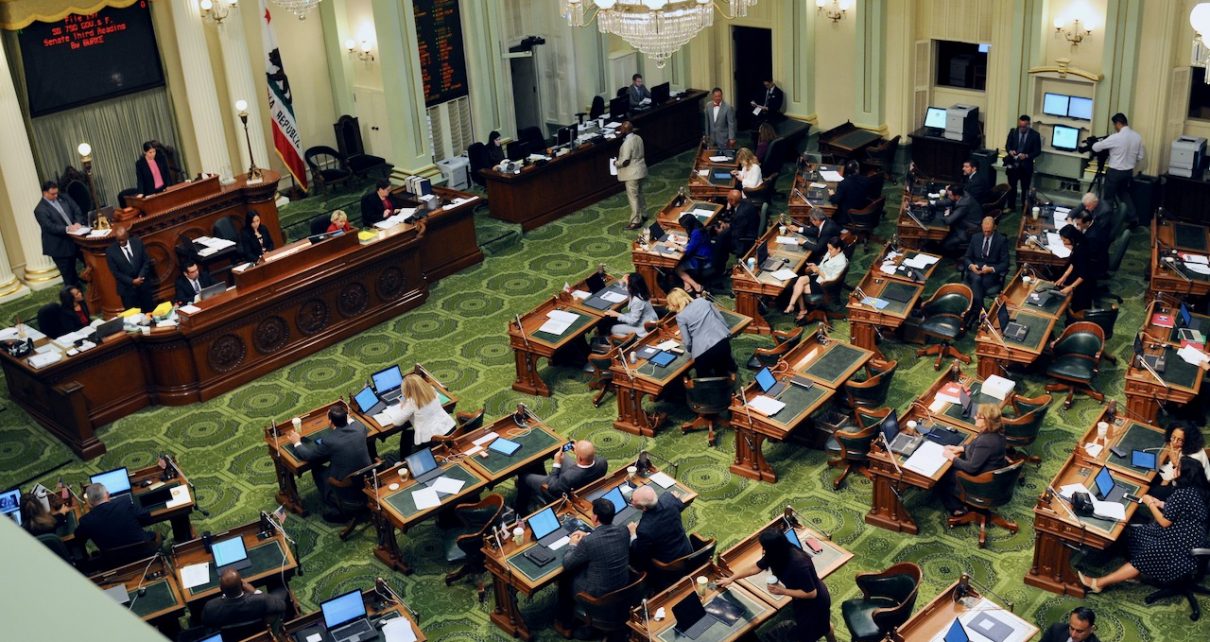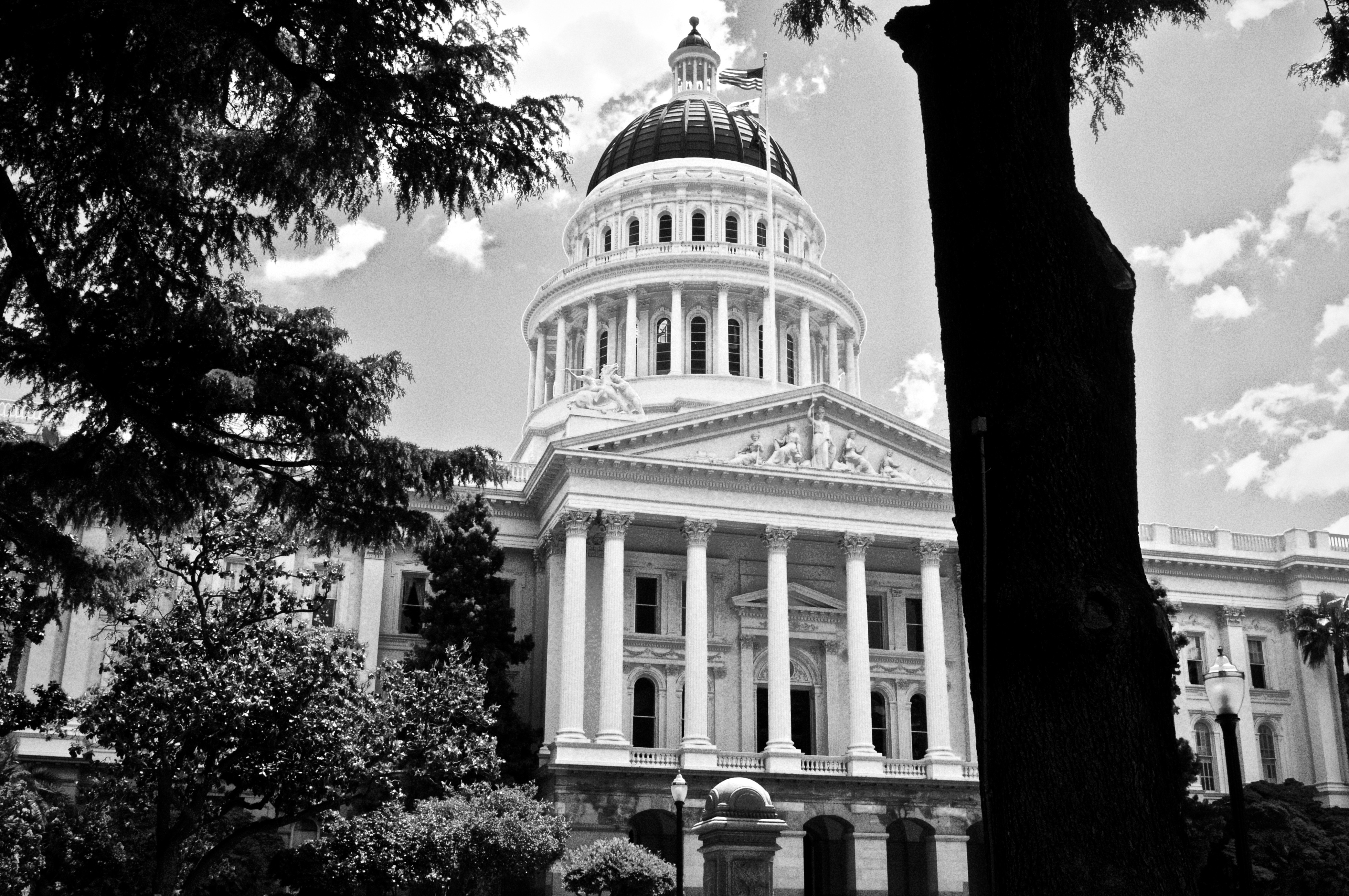
California State Assembly Chamber. (Photo: Kevin Sanders for California Globe)
Types of Lobbying Clients and Services
There are essentially three types of lobbying
By Chris Micheli, January 19, 2020 2:03 am
There are several different types of clients for contract lobbyists, each requiring different levels and types of services. Some clients are at the low-end of service level, while other clients are at the high-end of service level.
Contract lobbyists may have a myriad of clients in different industries, while others may specialize in specific types of clients, such as transportation or health care. Regardless of the subject matter of the client’s interests, there are essentially the following four types of clients.
Monitoring – some clients simply desire to know what is happening at the Legislature and/or regulatory agencies, as well as the Governor’s Office. This requires a lobbyist to monitor relevant legislation or regulations, as well as budget items and the politics involving particular issue areas. Some may be focused on a single issue area while other clients may require monitoring multiple agencies, such as all of the environmental agencies.
As a result of monitoring legislation and regulations, lobbyists may work with their clients to develop strategic plans designed to meet their near-term and long-term objectives. Included in strategic plans are usually an analysis of the political landscape, framing the issue, identifying potential allies and opponents, developing action items, establishing time lines, and regularly reviewing the status of the plan and adjusting it where necessary.
Lobbying – other clients desire lobbying services to be provided. These services can range from supporting or opposing legislation, or sponsoring bills to make changes in the law. The same would apply at regulatory agencies when rulemaking activities are undertaken to add, repeal or amend regulations. Naturally, there are different levels of lobbying services that can be provided to clients, ranging from writing and distributing letters to meetings with staff and legislators and even testifying before legislative committees.
With lobbying clients, there are different levels of service based upon the clients’ needs. There are some clients who care only about one bill for the entire year, either supporting it or opposing it. On the other hand, some clients take positions on dozens or more bills each year. These types of clients may have more than one contract lobbyist or one dedicated lobbyist to service the client’s entire lobbying needs.
There are essentially three types of lobbying:
Legislative Advocacy — Legislative consulting and advocacy services usually include extensive research and analysis of policy issues, daily monitoring of legislation introduced and amended, and advocacy for and against legislation affecting clients’ interests.
Budget Advocacy — The adoption of California’s State Budget is the single most important act of the Governor and the State Legislature because it sets the state’s spending priorities and policies which may prove to either harm or help a client’s interests. Moreover, the budget process is being used to adopt policy changes, which are often developed outside of the public hearing process and then quickly adopted.
Regulatory Advocacy — The state’s regulatory process, while an integral part of developing California’s public policy, is a world of its own with separate rules. Lobbyists help their clients meaningfully engage in the public comment period and formal hearings, as well as navigate the agency process for adopting and amending regulations.
Consulting – another type of client is one that does not require lobbying services, but instead desires to retain a lobbyist to provide consulting or advisory services. These clients want active advising regarding what they should be doing, such that the lobbyist provides political advice or consulting with the client on how to navigate the legislative or regulatory processes.
Lobbyists will help clients understand and effectively maneuver through the elections process. In each election cycle, they identify viable candidates for open seats, analyze the election campaigns, meet with each of the candidates, and recommend which of those candidates they believe are most aligned with their clients’ interests. In each election cycle, lobbyists may assist clients in thoughtfully deploying significant political contributions to candidates and statewide ballot measure committees.
Procurement – the last type of client is involved with a different type of lobbying: trying to secure contracts for the purchase of services or goods by the State of California. Procurement clients do not require registration as a lobbyist. And the work may not be traditional lobbying as the client often has a sales person and the lobbyist arranges meetings and may secure budget funding for the agency in order to purchase the goods or services.
Procurement services can included high-level executive management briefings and consultations to assist clients in getting executive support for their offerings to specific bid assistance resulting in successful procurements for clients in purchases of products and services. Contract lobbyists regularly work with the Department of General Services on procurement and state purchasing issues, as well as numerous state agencies for selecting clients’ products and services.
- Frequently Asked Questions About Ethics Training for Local Agencies - April 24, 2024
- Frequently Asked Questions about Privileges of Voters in California - April 23, 2024
- Does a Bill Need Statutory Construction Guidance? - April 22, 2024




